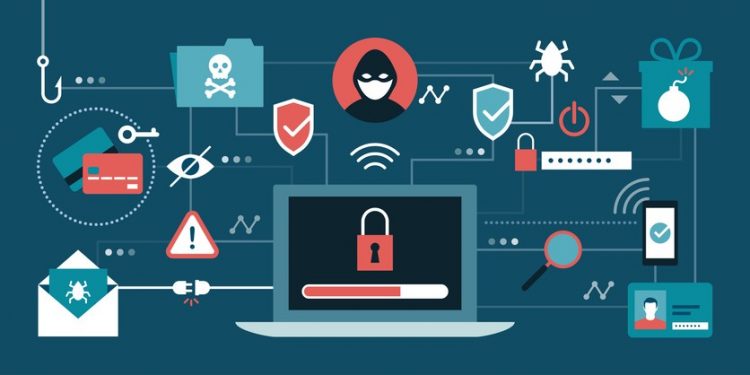In today’s world, cybersecurity is a top priority for organizations of all sizes. While it’s important to have the right technology in place to protect your network from cyberattacks, it’s also essential to implement security measures that address the human element.
Employees can unknowingly (and sometimes knowingly) invite hackers into your network by downloading malicious software, visiting suspicious websites, or clicking on suspicious emails. This can be hugely damaging for any organization, so it’s crucial to take steps to prevent employees from opening up your company to malicious attacks.
You need to take the time to train your employees from the start and be constantly exploring practical ways you can protect your company from malicious actors by stopping employees from inviting them in. This is the case even if you have business IT support services in place. We’ll focus on device-level protection that can help keep your data safe and secure.
Ways to Help Employees Prevent Hackers
When it comes to cybersecurity, employees are often the weakest link. They may not be intentionally inviting hackers into your network, but they may not be taking the necessary precautions to prevent themselves from becoming a victim. Here are a few ways you can help employees prevent hackers:
- Hire selectively – only bring on board employees that you trust and who have a demonstrated commitment to cybersecurity. Asking questions and checking references are great ways of being able to whittle down the ones who will be most proactive in this department.
- Make cybersecurity part of onboarding – ensure that all new employees receive training on how to keep their devices and account secure. This process should begin at hiring, but be ongoing enough that all employees feel secure in their ability to understand the purpose of cybersecurity.
- Continuous training to prevent hackers – provide ongoing training and reminders to all employees on how they can keep themselves safe from cyber threats. It needs to be often, too, not just once every year or two that the company as a whole broach this topic.
- Practice what you expect employees to do – lead by example and make sure that your own cybersecurity practices are up to par. If your employees are not allowed to open a personal email or surf the web on their devices, make sure you don’t either.
- Partner with a managed IT company – outsource your IT needs to a professional team that can help keep your systems and data secure. This partnership gives your company the best type of protection should an employee make a mistake and allow the wrong someone into your network.
Cybersecurity Awareness Must Involve All Staff Members
When it comes to preventing employees from inviting hackers into your network, cybersecurity awareness must involve all staff members. While it’s important to have strict policies and procedures in place, employees need to be aware of the dangers of not following these measures.
One way to increase awareness is to provide regular training on cybersecurity threats and how to avoid them. This can be done through in-person sessions, online modules, or even short videos that cover topics such as phishing scams and social engineering attacks.
In addition to training, make sure employees are aware of the consequences of failing to follow security protocol. Many people are unaware of the legal implications of cybercrimes, so make sure they understand that violating company policy could lead to termination or prosecution.
Finally, keep employees up-to-date on the latest security threats and what they can do to protect themselves. Cybersecurity is an ever-changing landscape, so it’s important that employees are always aware of the latest risks. By staying up-to-date, they can help keep your network safe from attacks.
Practice As a Company to Detect Intrusions
When it comes to devising protection, one of the best ways to prevent employees from inviting hackers into your network is to practice as a company. This means that you should have a clear and concise policy in place regarding the use of devices and how they should be protected. Employees should be aware of the risks associated with their devices and be trained on how to properly protect them.
In addition to practicing as a company, it is also important to make sure that your employees are using strong passwords and two-factor authentication whenever possible. You should also have a process in place for monitoring and responding to potential security threats. By taking these steps, you can help to ensure that your network remains secure and that your employees are not inadvertently inviting hackers in.
Make Sure Cyber Safety is Always Top of Mind
By implementing the right protocols, policies, and security solutions related to devise protection, employers can reduce their risk of inviting hackers into the network. These steps include regularly patching devices, using strong passwords and two-factor authentication for remote access, restricting user accounts to only necessary applications and data sets, and training employees on how to be aware of threats. By following these guidelines, organizations can protect themselves from malicious attacks while ensuring a secure working environment for all.
Author Bio
Richelle Calicott is the partner and Chief Financial Officer for TechSeven Partners. TechSeven Partners is an IT solutions provider in Fort Mill, SC. TechSeven is prominent in the small to medium business sectors and provides strategic technology, and cyber security solutions for growing businesses business network design in Charlotte
Follow Techdee for more!





